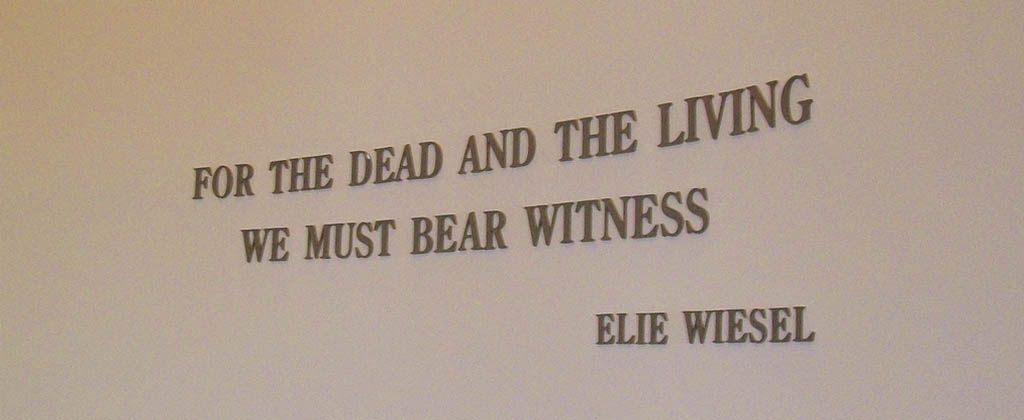Elie Wiesel: Witness
Elie Wiesel died this past weekend aged 87.
Survivor of the Holocaust aged 15 and a half.
If it hadn't been for the war, I would not have written.
In between those two ages, he felt compelled to tell of what he’d seen. A witness to the unbelievable and unimaginable. A prolific writer, he was best known for ‘Night’, his own horrific account of Auschwitz.
If I survived, it must be for some reason. I must do something with my life. It is too serious to play games with anymore, because in my place, someone else could have been saved. And so I speak for that person. On the other hand, I know I cannot.
He was driven to tell and tell and tell again. It was so shocking to him that no-one had spoken out whilst it was happening. Before he and his family were deported. He was never to see his mother or one of sisters again. He was to watch his father die in Auschwitz.
If anyone had told us where we really were going, many of us would have fled to the mountains. That's what hurt - that no one told us. We were so isolated: the rest of the world knew, but we didn't even know what the word 'Auschwitz' meant. The first day there, I was walking with my father and a man came up to tell us what was going on, and I remember saying to my father, 'It is impossible. We live in the 20th century, not the Middle Ages - people cannot be silent.' People were silent.
Awarded the Nobel Peace Prize in 1986, Barack Obama described him as, “one of the great moral voices of our time, and in many ways, the conscience of the world.”
At the US Holocaust Memorial Museum in Washington his words - “For the dead and the living, we must bear witness” - are engraved in stone at the entrance. At the dedication ceremony before President Clinton, he said,
What has been my vision? When President Carter entrusted me with this project in 1978, I was asked about that vision, and I wrote then one sentence. And now my words are here engraved in stone at the entrance to this edifice. And those words are ‘For the dead and the living, we must bear witness.’ For not only are we responsible for the memories of the dead, we are also responsible for what we are doing with those memories.
Sara J. Bloomfield, the museum’s director described him as a 'singular moral voice'. “...he brought a kind of moral and intellectual leadership and eloquence, not only to the memory of the Holocaust, but to the lessons of the Holocaust, that was just incomparable. There is nothing that can replace the survivor voice — that power, that authenticity."
Telling his story seemed less about him, than it does for most these days, and more about us. Less 'I need to tell my story' and more 'You need to hear my story', for your own good. On receipt of his Nobel Prize he said that what he had done with his life was to try “to keep memory alive” and “to fight those who would forget.”
Of course his story was only one part in a much bigger story. Its implications and repercussions still resounding today. However in 2002 he opened a museum in the house where he had once lived - before everything changed - and simply asked the young Romanians listening,
When you grow up, tell your children that you have seen a Jew in Sighet telling his story.
Postscript
Although Wiesel was compelled to tell of what he'd seen and not allow the world to remain silent. He kept quiet for a decade before he felt able to share the words he felt adequately captured the horror of what he'd seen. After his death John Kelly wrote this - Elie Wiesel’s Profound and Paradoxical Language of Silence.
Sources
- Wiesel: No Answers, Only Questions - April 7th, 1981 - The NYTimes
- Elie Wiesel's Remarks at the Dedication for the USHMM - April 22nd, 1993
- A God Who Remembers - April 7th, 2008 - NPR
- Elie Wiesel - July 4th, 2016 - Independent
- Elie Wiesel, Auschwitz Survivor and Nobel Peace Prize Winner, Dies at 87 - July 4th, 2016 - The NYTimes
- Remembering Elie Wiesel - July 4th, 2016 - NPR

